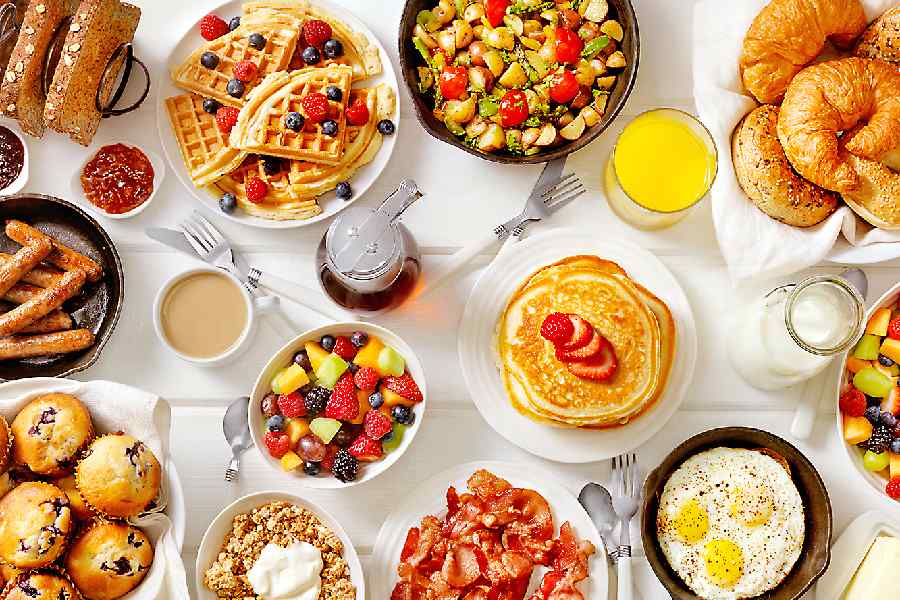Not only does a morning meal provide the fuel you need to start your day, but also numerous studies have found that eating breakfast regularly is associated with a range of health benefits.
These include reduced risks for obesity, cardiovascular disease and type 2 diabetes; as well as improved short-term memory in adults, better school performance in children and better diet quality overall, said Kathryn Starr, a registered dietitian and associate professor of medicine at Duke University School of Medicine, US.
“All of our meals are important; I don’t think breakfast is the most important meal,” Starr said. But it “kick-starts the process for our body to function properly.”
To maintain healthy blood sugar, energy and fullness levels until your next meal, getting the right balance of protein, fibre and unsaturated fats at breakfast is important, said Lauren Harris-Pincus, a registered dietitian in New Jersey, near New York in the US.
This roughly translates to at least 20 grams of protein, eight to 10 grams of fibre and 10 to 15 grams of unsaturated fats, totaling about 300 to 350 calories, Harris-Pincus said.
But it’s important not to get hung up on the numbers, said Alice H. Lichtenstein, a professor of nutrition science and policy at the Friedman School of Nutrition Science and Policy at Tufts University, US.
Your nutrient needs will depend on your weight, activity level, age and health conditions, Lichtenstein said.
More important, she said, is focussing on what you enjoy and makes you feel energised and sated. “So many times we’ve tried to give people formulas,” she said, “and if you look at dietary patterns and scores in the US, we’re not doing that well as far as diet quality goes.”
“So what’s the ideal breakfast?” Lichtenstein said. “It’s whatever makes your body work best.”
Protein
Your body needs protein to maintain your muscle mass, metabolism and physical strength (among other things), Harris-Pincus said, but it can use only about 25 to 35 grams of protein per meal for those purposes. If you consume more protein in one sitting, your body will either use it as energy, store it as fat or excrete it. So if you “skip breakfast or don’t eat protein at breakfast,” Harris-Pincus said, “you lose that opportunity because you can’t double up on protein later.”
‘Shortfall’ nutrients
Calcium, vitamin D, potassium and fibre are commonly called shortfall nutrients.Over time, deficiencies in such nutrients can lead to problems including weak bones, poor gut health and high blood pressure. But it so happens that many healthy breakfast foods are packed with those nutrients. Most fortified cow’s milk contains calcium, vitamin D and potassium; most fortified cereals contain vitamin D (just be sure to choose those high in fibre and low in added sugars); bananas, citrus and many dried fruits have potassium; and oats are rich in fibre. “So when you think about something like a bowl of whole grain cereal and milk with some fruit, that really makes a dent in those shortfall nutrients,” Harris-Pincus said.
Don’t be limited
You don’t have to confine yourself to standard breakfast fare to get a mix of nutrients in the morning, said Josephine Connolly-Schoonen, director of nutrition at Stony Brook Medicine, US. “Any whole, plant-based food is going to have lots of phytonutrients,” she said, which are antioxidants that protect your cells from damage. These foods also contain fibre, which helps you stay full and supports gut health. Coffee and tea can also provide some antioxidants and be part of a nutritious breakfast — just don’t overdo it on the sugar or cream.
NYTNS










